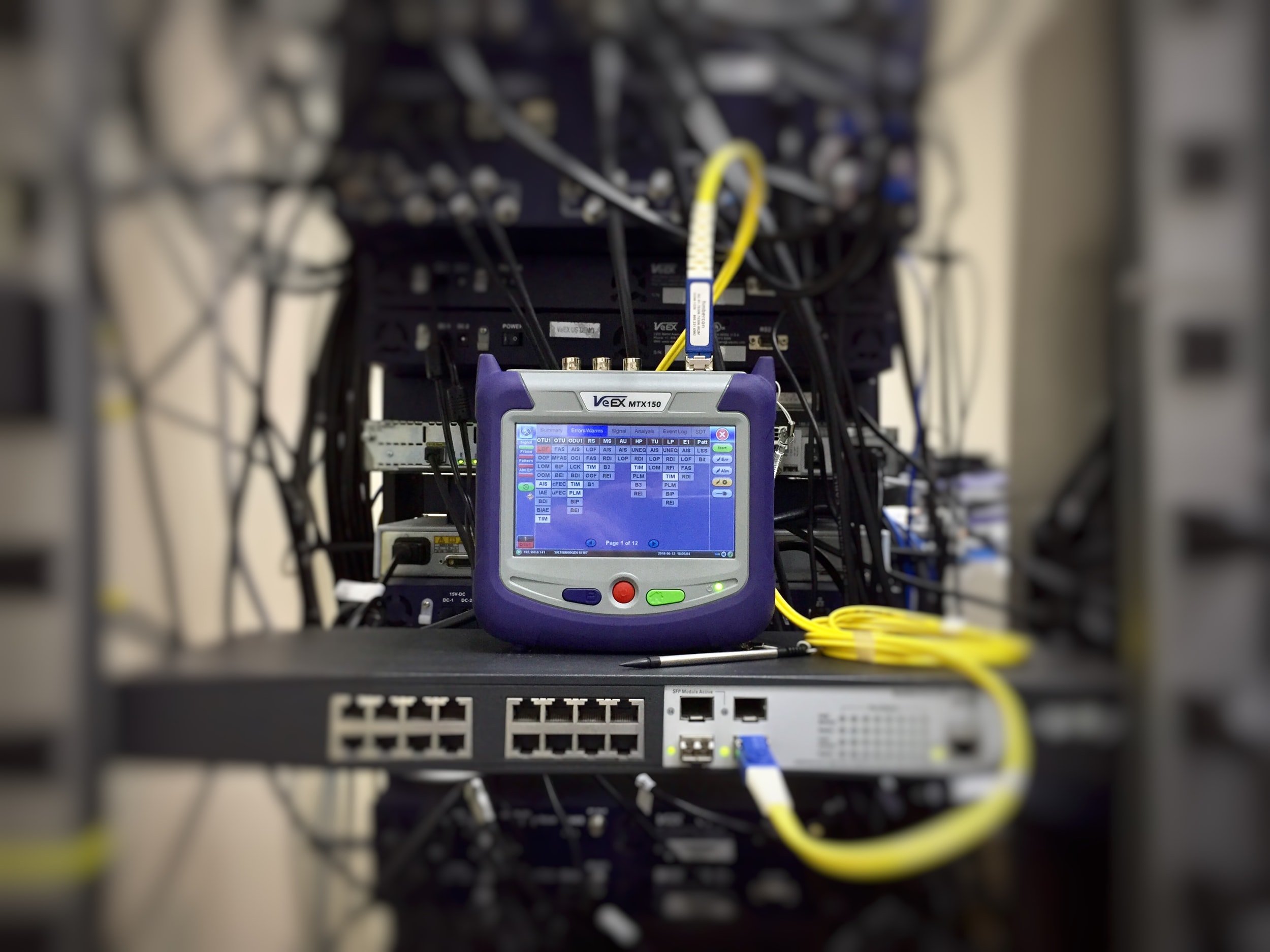NBAU Blog

Dr. Matt Tidwell: crises, values and media readiness in a divided world
How can organizations stay true to their values when navigating high-stakes situations amid rising activism, widespread misinformation, and shrinking newsrooms? In this Resilience Unfiltered Coffee Chat, crisis strategist and educator Dr. Matt Tidwell explores the connection between values, crisis resilience and media readiness—and why so many crisis plans sit on a shelf, untested and outdated. He also shares insights on proactive media training and crisis preparedness as a continuous, evolving process.

Beyond the headlines: five wishes for communicators in an uncertain world
The world is changing faster than we can process. Geopolitical shifts, digital disruption and deep societal divides are reshaping reality in ways we don’t yet have the language for. In this blog, I take a step beyond the headlines to explore what’s ahead—and how communicators can make sense of it all. In times of crisis and transformation, what we say—and how we say it—matters more than ever. This blog offers five "wishes" for communicators navigating uncertainty in 2025, from the power of words to the importance of resilience.

Anne Marie Aikins on proactive reputation management in ‘good and really bad times’
In this Resilience Unfiltered Coffee Chat, veteran issues management strategist Anne Marie Aikins explores how organizations can navigate media relationships during both “good and really, really bad times” amid rapid media change. She stresses the importance of proactive reputation management in mitigating risks and offers advice to help spokespeople boost their confidence and build trust as strategic advisors to their leadership teams.

Beneath the surface: dealing with whale-size problems in media interviews
Spokespeople navigating high-stakes media interviews must be equipped to address hidden challenges that could escalate into larger issues if unaddressed. These 'whales' beneath the surface are complex problems that require strategic management. For those facing unexpected questions or difficult media moments, this blog provides actionable tips to navigate challenges and steer interviews toward safer waters.

Coffee chat with Kim Clark: is there a way to get layoffs right?
In this Resilience Unfiltered Series coffee chat, DEI communications expert Kim Clark joins Natalia Smalyuk to discuss the difficult reality of layoffs and urge leaders to consider alternatives. Kim argues layoffs should be a last resort, sharing strategies for minimizing their impact, exploring options and offering insights on how communicators can play a crucial role in navigating decisions. The Resilience Unfiltered Series encourages open dialogue on tough issues to build understanding and resilience in times of crises and change.

A coffee break Q&A with Alexander Rau: “Cyber resilience is a marathon, not a sprint”
This coffee-break Q&A with Alexander Rau, a partner leading KPMG’s Technology Risk Consulting Advisory Practice, is about what organizations should watch out for in the changing landscape of cyber risk, from the rise of third-party attacks to the challenges posed by zero-day vulnerabilities to AI-driven threats. The chat is packed with tips on how companies can enhance their cyber crisis resilience before, during and after adverse events.

How come you didn’t see this coming?
Strategic planning and crisis planning are often seen as separate processes. They don't have to be. Boards can enhance organizational resilience balancing oversight and foresight, integrating strategic planning and crisis planning, and using scenarios to plan ahead. When an organization makes a strategic choice, it must do the homework on its vulnerabilities, working through the issues before they become bigger problems in early detection, prevention, mitigation and proactive crisis management programs. Shifting from asking “What are the odds?” to “What’s important?” and “What if?” boards get in front of the question: “How come you didn’t see this coming?”

Crisis resilience: coping with wicked messes in uncertain times
Today’s crisis cascades show the complexity of communication in global and national disasters where stakeholder expectations shift extremely quickly. Many of today’s scenarios, from regional wars to economic shocks to severe weather events, are not in the traditional playbooks. The article talks about proactive, strategic, systemic crisis management in uncertain times – and how communicators can bring value as reputation coaches before, during and after adverse events.

A coffee Q&A with Dr. Ian Mitroff: thinking systemically is the most critical skill in crisis planning
In this coffee Q&A with Dr. Ian Mitroff, we talk about Systems Thinking as a core principle of preparedness in a complex, highly interconnected world. Dr. Mitroff is credited as one of the founders of the modern discipline of Proactive Crisis Management.

Risk, trust and possibility: year-turn thoughts on news and trends
Each year has a story. During the holidays, I thought back about 2023, a cup of coffee in my hand and a golden pup at my feet. This blog is my take on the news and headlines of the last year, as well as any clues they might hold about risk and trust in 2024.

A coffee Q&A with Helio Fred Garcia: the agony of decisions and the power of patterns in a crisis
Helio Fred Garcia is a professor in the New York University’s Stern School of Business and Columbia University’s graduate school of engineering, head of a New York-based consulting firm, counsellor and author. In this Q&A, we chat about the power of patterns when stakes are high.

Communication and biochemistry: strategies for conversational excellence
Conversations are not just a way of sharing information. Activating neural pathways, they trigger physical and emotional changes that may shape relationship and performance outcomes. What can go wrong, and how do we get it right? The article focuses on the biochemical dynamics of conversations to build trust.

A coffee Q&A with Christal Austin: climate emergency & disaster preparedness
Christal P. Austin is a PR advisor, international speaker and Director (Ag.) of the Public Affairs Department in the Ministry of Home Affairs and Information in Barbados. In this Q&A, I am delighted to share Christal’s thoughts on disaster management.

AI stakeholders benefit from faster action on risk, not slower innovation
Super-intelligent AI systems are here. It’s only human to feel like “deer in the headlights” attempting to pause or ban the unknown. In hindsight though, technology breakthroughs teach us that kicking the can comes with its own risk. Going faster on learning is a better option than slowing down on innovation.

Coffee with Dr. Ian Mitroff: thinking the unthinkable
Dr. Ian Mitroff and I first met after I read his book “Why some companies emerge stronger and better from a crisis: 7 essential lessons for surviving disaster.” Every time we have virtual coffee I take copious notes. I thought others might benefit from hearing Dr. Mitroff’s thoughts, too, and so came the idea of this Q&A.

No news is not good news: interview tips to connect with a weary audience
If you want to build your career, break whatever ceilings are in your way and make a difference, no news is not good news. This blog has tips for spokespeople to advance their agenda, address media questions, and connect with the audience to build understanding and trust.

PR and (geo)politics: year-end thoughts on headlines and trends to watch
In the biggest headlines and twists of 2022, the lines between communication and (geo)politics blur. Trapped in this dynamic, I decided to face it head on in this humble take on where we, communicators, make a difference in a struggling world.

From the courtroom to the game room: seven steps to crisis resilience for law firms
Most law firms deal with crises every day. Lawsuits. Court battles. Privacy breaches. But what if this happens to them? For organizations operating in crisis-ridden environments, a disaster is a matter of “when,” not “if.” This blog outlines seven steps law firms can take to boost preparedness for these “predictable surprises.”

Rogers system outage: seven steps to better crisis resilience
When I learned about the Rogers outage on Friday, like many Canadians, I wondered what happened, and why it happened in the first place. There was not much in terms of answers.
Rogers’ outage response makes for a telling “how-not-to” crisis management case study other organizations can learn from as they consider steps to better resilience.

Cyber security: the perils of not acting on early warning signals
Three quarters of cyber crises are issues that are not dealt with on time. While this may sound shocking, there are signals one can watch out for warning an organization that potential trouble is on the horizon.

